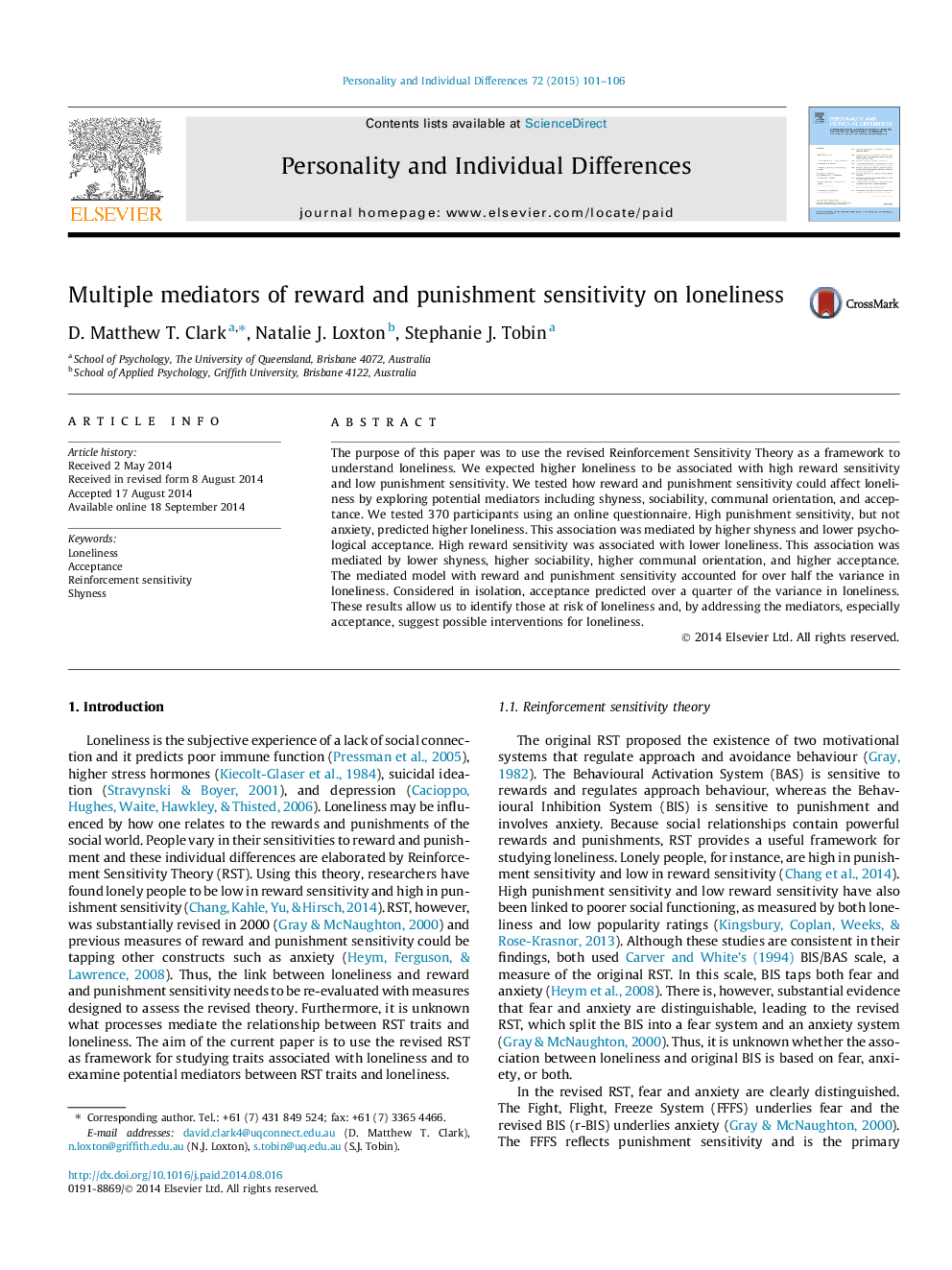| Article ID | Journal | Published Year | Pages | File Type |
|---|---|---|---|---|
| 7252098 | Personality and Individual Differences | 2015 | 6 Pages |
Abstract
The purpose of this paper was to use the revised Reinforcement Sensitivity Theory as a framework to understand loneliness. We expected higher loneliness to be associated with high reward sensitivity and low punishment sensitivity. We tested how reward and punishment sensitivity could affect loneliness by exploring potential mediators including shyness, sociability, communal orientation, and acceptance. We tested 370 participants using an online questionnaire. High punishment sensitivity, but not anxiety, predicted higher loneliness. This association was mediated by higher shyness and lower psychological acceptance. High reward sensitivity was associated with lower loneliness. This association was mediated by lower shyness, higher sociability, higher communal orientation, and higher acceptance. The mediated model with reward and punishment sensitivity accounted for over half the variance in loneliness. Considered in isolation, acceptance predicted over a quarter of the variance in loneliness. These results allow us to identify those at risk of loneliness and, by addressing the mediators, especially acceptance, suggest possible interventions for loneliness.
Related Topics
Life Sciences
Neuroscience
Behavioral Neuroscience
Authors
D. Matthew T. Clark, Natalie J. Loxton, Stephanie J. Tobin,
